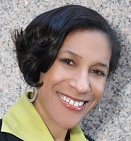by Pamela Arnold
President, American Institute for Managing Diversity, Inc.
Lisa Horuczi Markus
Cofounder, C@TALYST
The number one emerging hot topic among chief executives is ‘social.’ ‘Social’ is shorthand for the social media boom that’s hit globally, and many companies are wondering how they can harness the power of the social network.
Dr. R. Roosevelt Thomas, Jr. in World Class Diversity Management – A Strategic Approach, confirms the current diversity dialogue that “the field is at a turning point. It can move into decline, stagnate or grow into a bigger, disciplined purpose.” Leaders in the diversity field agree and are looking for possible solutions utilizing technology specifically gaming — as a successful formula for changing individual and team behavior.
In the first installment of this series we explored how gameplay has become a global phenomenon with more than 1 billion additional gamers expected by 2020. This second installment will spell out how diversity and game mechanics can be applied enterprise wide to make sense of social.
“The most dramatic growth in the social space has been among diverse groups.”
According to Telligent CEO Patrick Brandt, the internet has gone through three waves: Content finding information through the internet; Search Making sense of the information posted and helping people find what they want; and Social People are looking for opinions of others who matter to them as a criteria for making their decisions.
And who is online? The most dramatic growth in the social space has been among diverse groups. For example, African Americans and Latinos are highly more likely to use Twitter than Whites in the United States. Globally, internet adoption may be slower but the percent in emerging countries gamers is high. In emerging markets of Brazil and Russia, the active internet population totals 46 million in both countries, but at least 75% plays games.
Most corporate leaders see social as a way to mine personal data as a means to provide the Amazon equivalent of personalized sales. At a recent conference, a consultant nearly incited a crowd revolt when he communicated that his vision of social applied to health care. In essence, he suggested that through harnessing the participant’s biometric data, health claims and social network, as well as GPS coordinates, that a participant could receive a text to pick up blood pressure medication or insulin when passing his or her pharmacy. A technology-enabled big brother is not what people want and pursuing this tactic may get companies slapped with privacy lawsuits.
Instead, companies should consider leveraging how social can guide the activity with game mechanics. Not gamification—which is simply applying some points and badges as part of a company brand loyalty program — but helping people do something bigger. Instead of using technology to manipulate consumer or employee behaviors, companies should seek to help people level up in life, and in return, they would receive more loyalty and positive action. There are three areas of intrinsic motivation: mastery, autonomy and purpose. The reason why the good games are so addictive is that they touch on those three areas. Those companies that provide people with meaningful experiences to get more of what they want to out of life — because of their brand — will be the winners.
And there are a couple of added bonuses to playing games: people can form friendships, and it can be fun! According to Volkswagen’s funtheory.com website, “something as simple as fun is the easiest way to change people’s behavior for the better.” On this site, contestants submit world-changing ideas and the winners can see their ideas made into reality and review the results that follow.
As diversity champions and leaders, we can harness the social power of diversity management PLUS technology and provide a sustainable, inclusive environment for the global workforce of today and tomorrow.

Pamela W. Arnold
President
American Institute for Managing Diversity, Inc.
Pamela W. Arnold is President of the American Institute for Managing Diversity, Inc. The organization is a 501(c)(3) public interest nonprofit dedicated to advancing diversity thought leadership through research, education, and public outreach. AIMD works to strengthen our communities and institutions through effective diversity management. For more information, please visit www.aimd.org.

Lisa Horuczi Markus
Cofounder
C@TALYST
Lisa Horuczi Markus is the cofounder of C@TALYST, a game innovation lab located in Southern California and a board member of The American Institute for Managing Diversity and the Los Angeles-based Youth Mentoring Connection.






